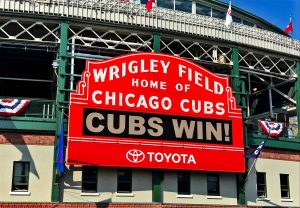 Effective betting control acts and legislation involve a lot of moving parts within the sporting business, IRS, and in the judicial system. These acts call upon players, judiciary, and most importantly the general public. They require the active participation of all these key players in order to make betting safe and profitable to all involved parties. As a result, it is important for legislation to clearly highlight what qualifies as a legal bet and what does not.
Effective betting control acts and legislation involve a lot of moving parts within the sporting business, IRS, and in the judicial system. These acts call upon players, judiciary, and most importantly the general public. They require the active participation of all these key players in order to make betting safe and profitable to all involved parties. As a result, it is important for legislation to clearly highlight what qualifies as a legal bet and what does not.
Traditional Gambling or Online Gambling
Over the past few years, online gambling has grown out of the shadows to dominate over traditional gambling. This skyrocketing trend of online betting is largely attributed to technological advancements that allow young gamblers to place their bets from virtually anywhere in the world. An example is the futuristic stock market-like platforms that are fueled by massive networks of internet devices ranging from microchips to smart devices that crunch real-time data and present it to the potential gambler.
In addition, the explosion of fantasy sports and betting further augments gambling at its core by presenting young players with virtual characters and games that are entirely moderated by machines. On the other hand, there is traditional betting that requires the gambler to be present at the betting site. Take for instance horse races and casinos that require a gambler to be physically present prior to placing a bet.
Gambling Laws in Chicago
According to several versions of gambling legislation, traditional gambling is relatively manageable when compared to online gambling. In principle, it is exceptionally difficult to tamper with traditional bets because it involves human/physical interactions in most cases. On the other hand, it is easy to identify betting establishments and collect revenues from such facilities when compared to virtual accounts in the case of online gambling.
In contrast, online gambling eliminates the need for human interactions by using computers and smart devices. In addition, online gambling also presents fantasy scenarios to the gambler, making this form of gambling appealing to a huge number of young players. However, this form of gambling is uncontainable to a large extent, thus making it difficult to manage under the current Chicago gambling laws. In fact, a recent litigation challenging the Professional and Amateur Sports Protection Act (PASPA, 1992) is at the center of a heated lawsuit that aims at curbing sports gambling.
Under the Illinois Gambling Laws, certain types of gambling, including sports betting, are illegal. Sports betting is considered a Class A misdemeanor and in some cases a white collar crime with a minimum jail sentence of one year and fines not exceeding $2,500. With respect to young gamblers, these penalties are extreme. While the current statute offers an alternative of placing wagers at physical sites such as casinos, it is inconvenient as it is restricting, especially to young players.
The PASPA statute makes it illegal to bet on sports in literally all the states. With the exception of Nevada, sports betting is not regulated in most states (including Illinois), thus making it illegal. Nonetheless, that does prevent Chicago residents from betting on sites that are located outside of Illinois. However, with the upsurge of sports betting sites across the world, taming young players is gradually becoming a hurdle.
In the event that you are apprehended for illegal sports betting, it is imperative to get in touch with a professional attorney at law. For further assistance, please get in touch with the offices of David Freidberg or call us at (312) 560-7100.
(image courtesy of Heather Maguire)
 Chicago Criminal Lawyer Blog
Chicago Criminal Lawyer Blog


